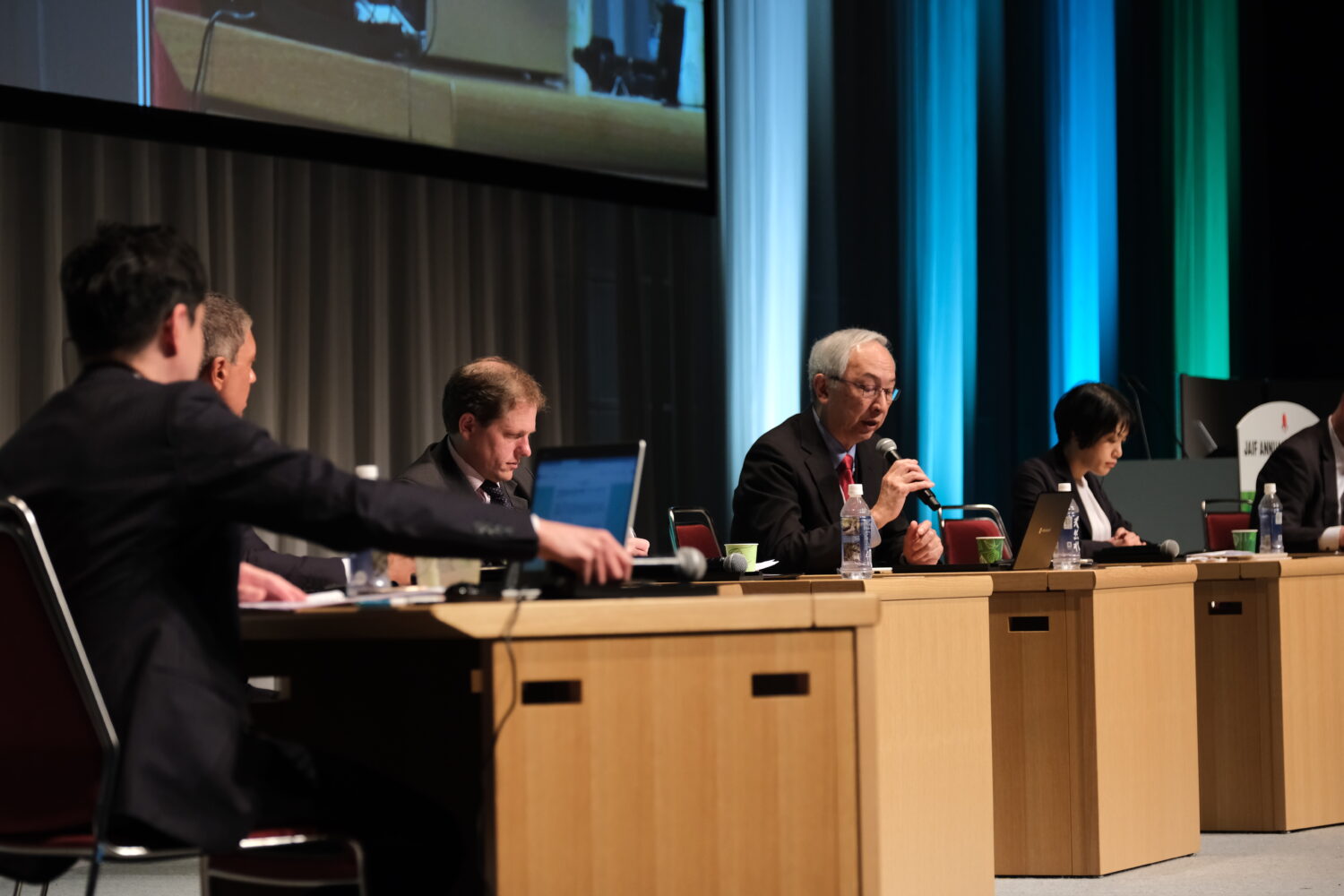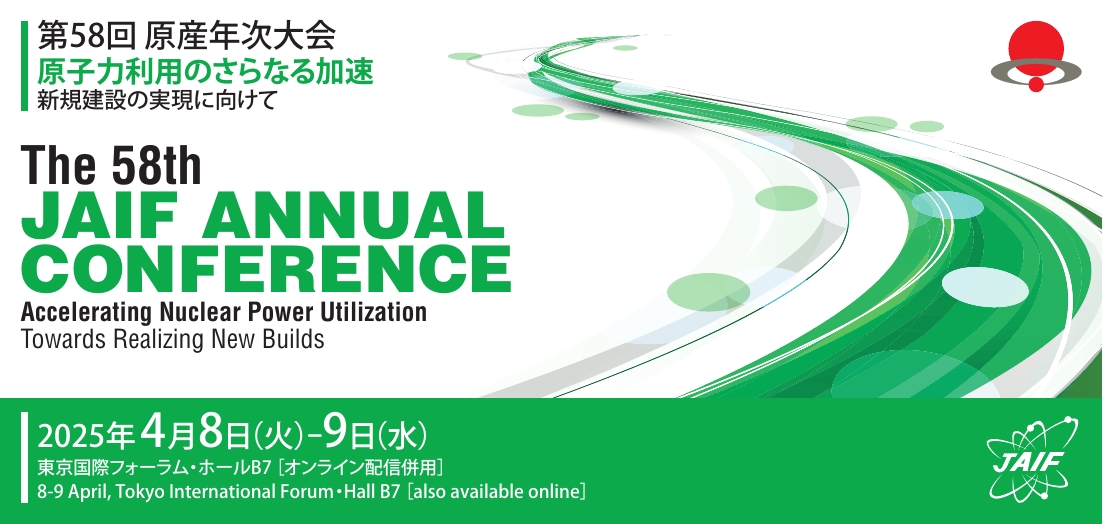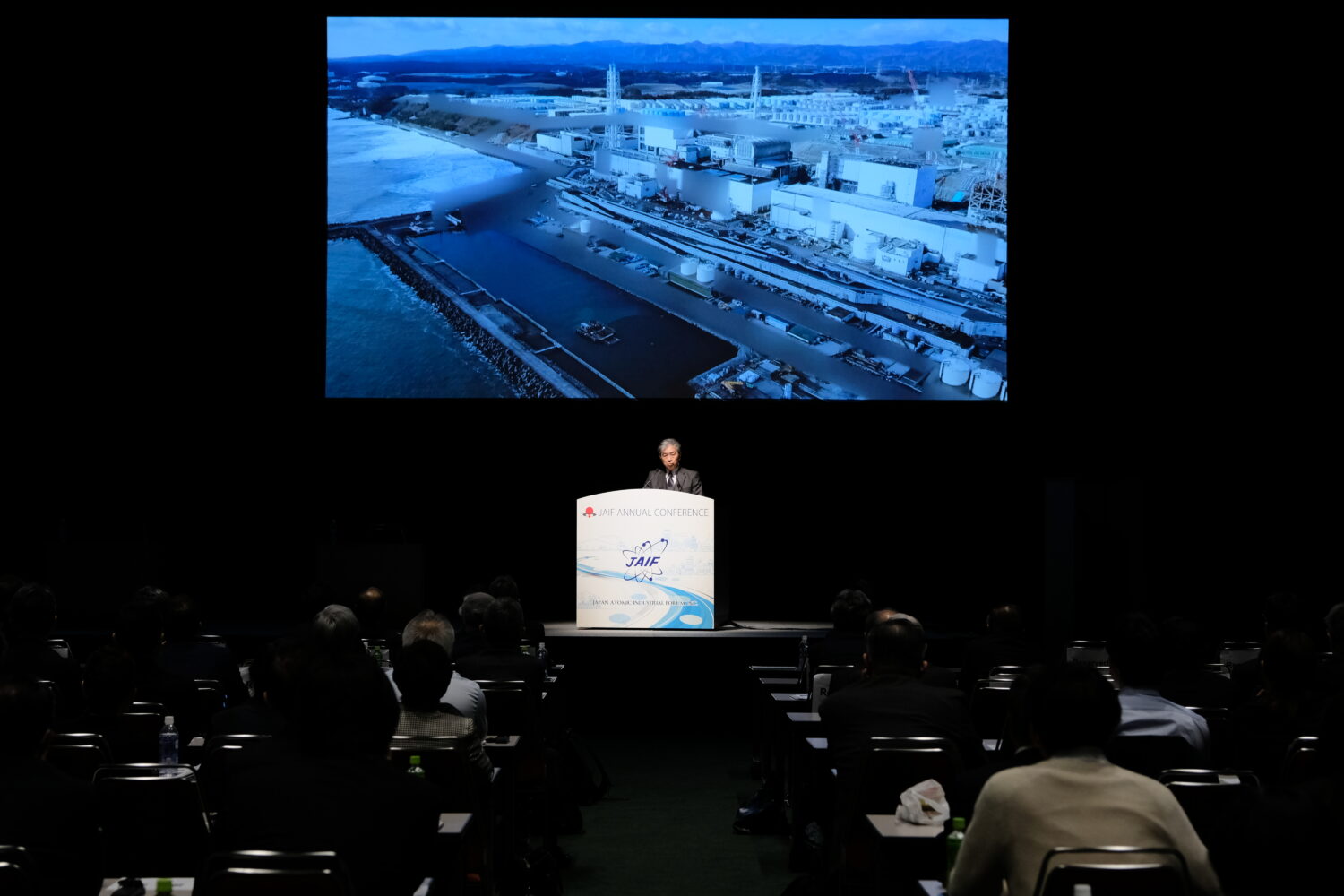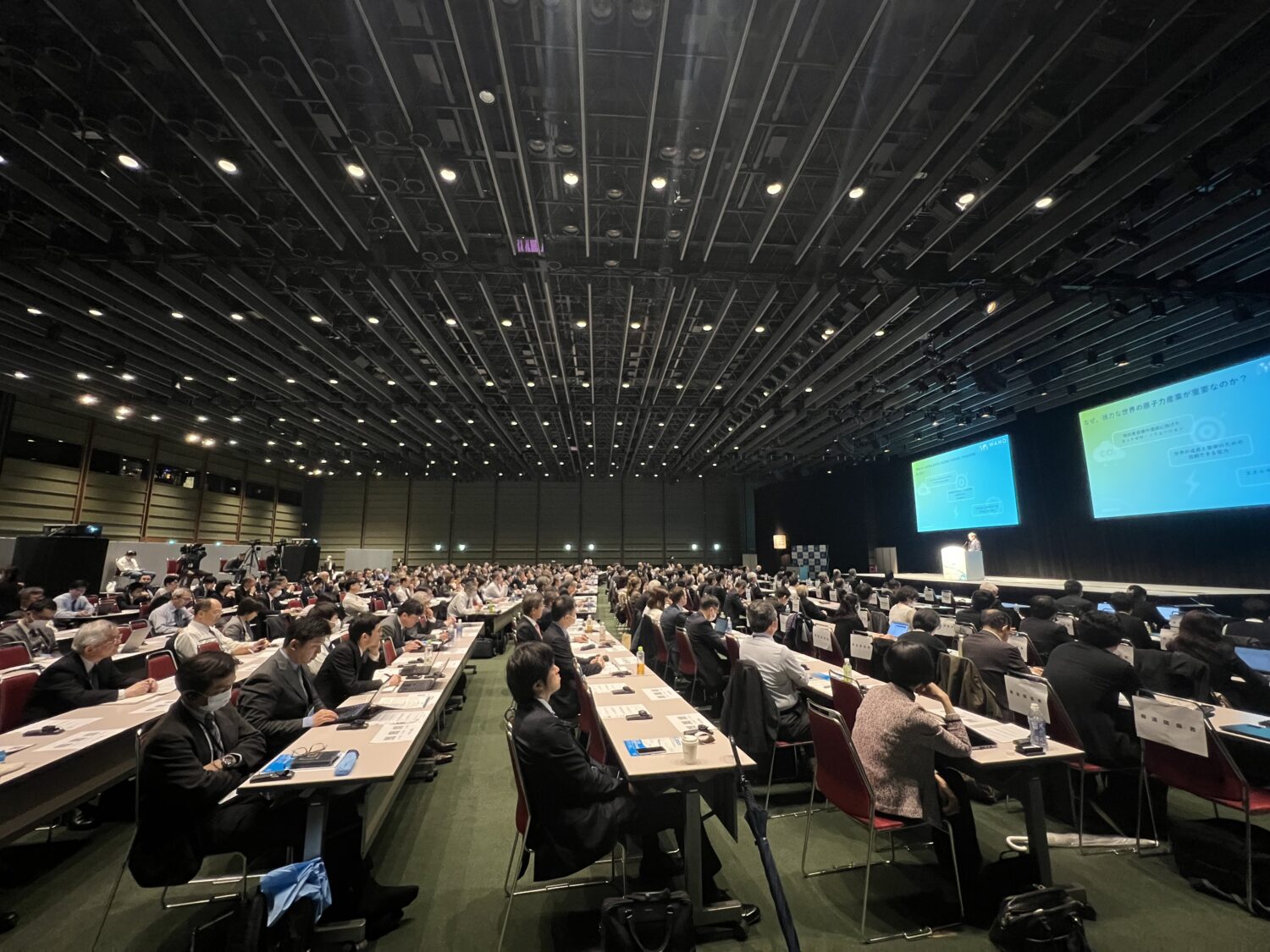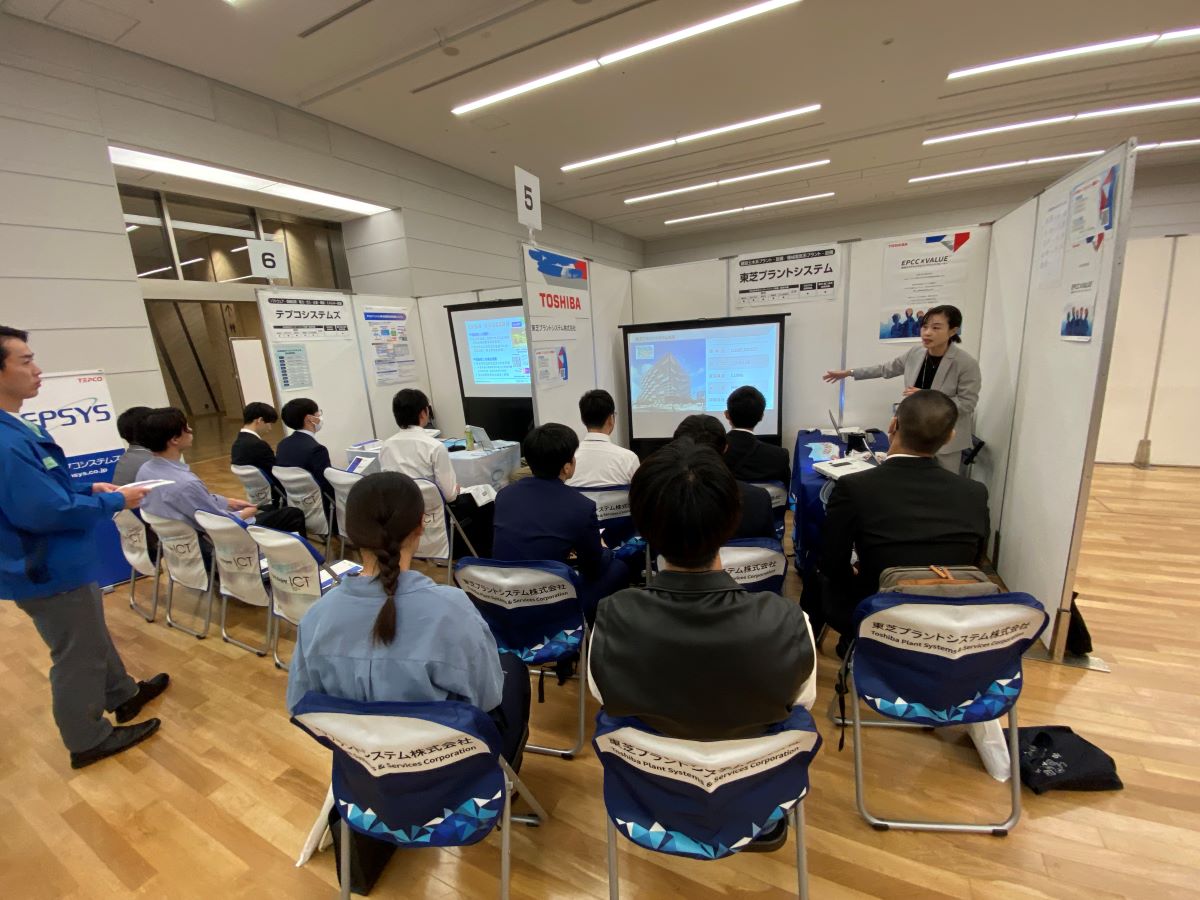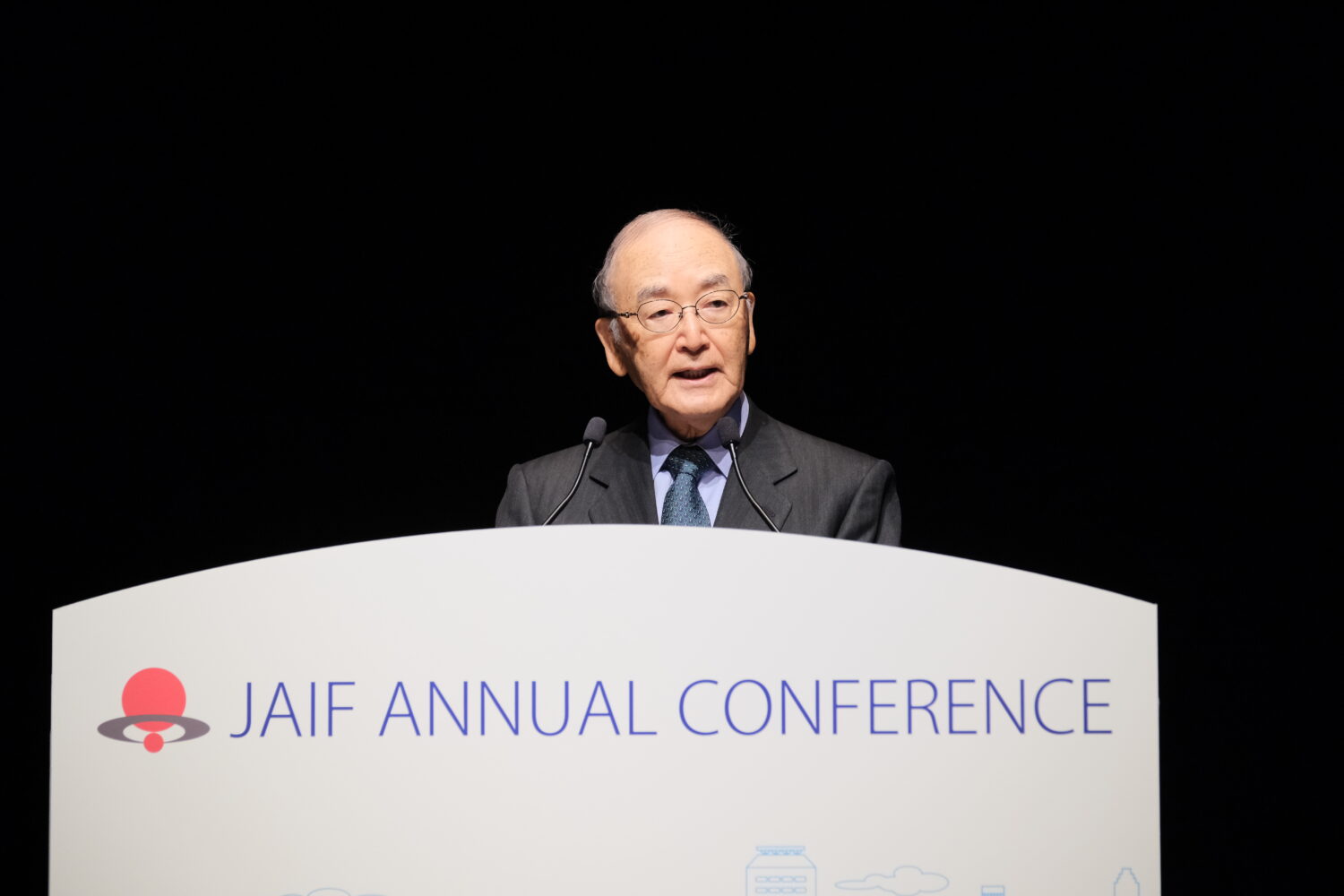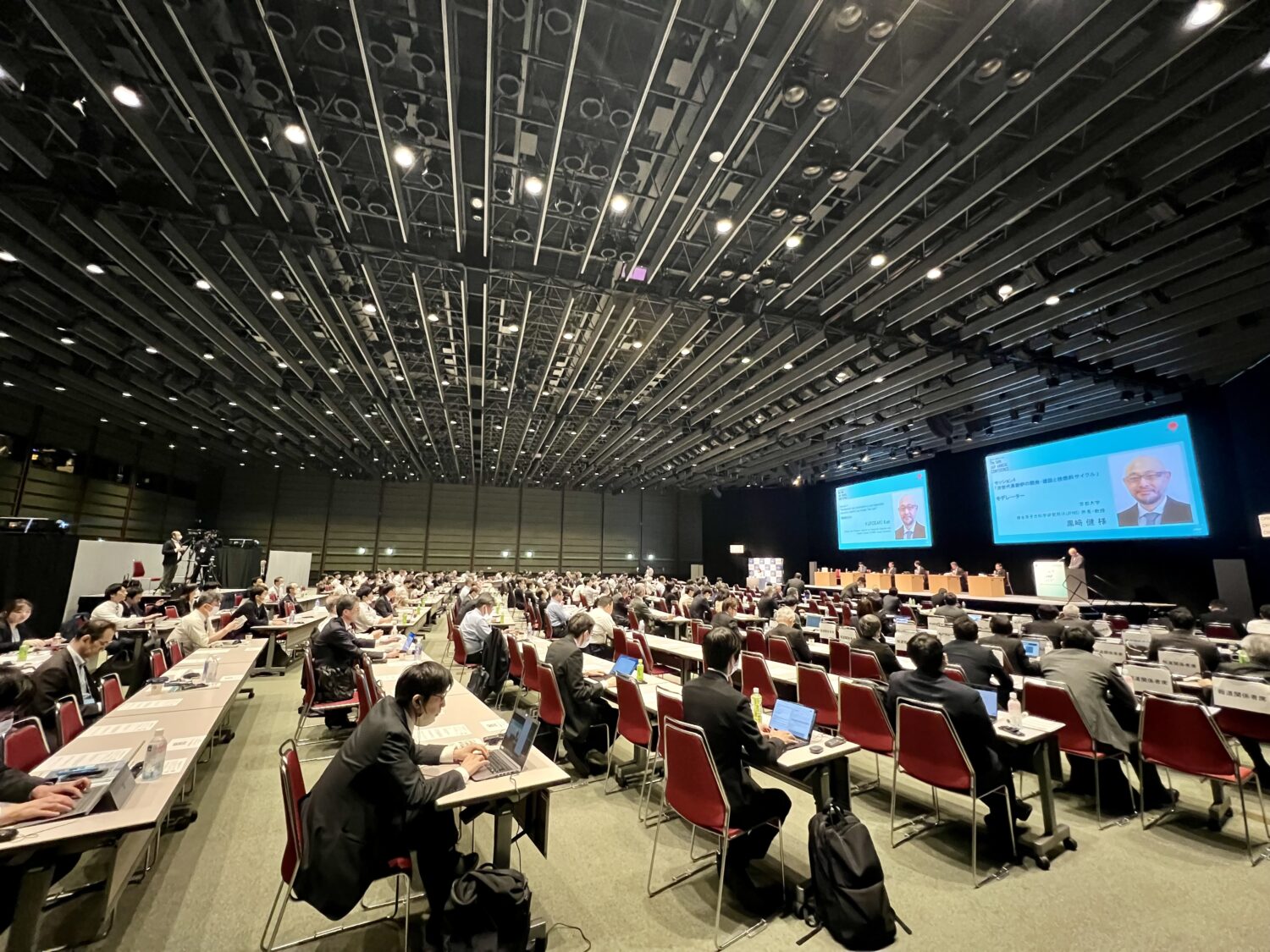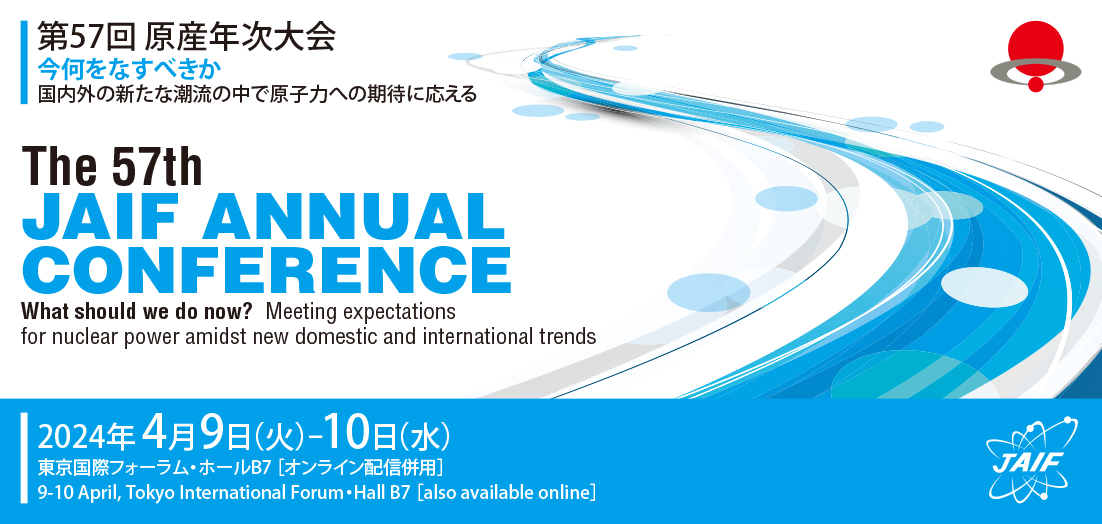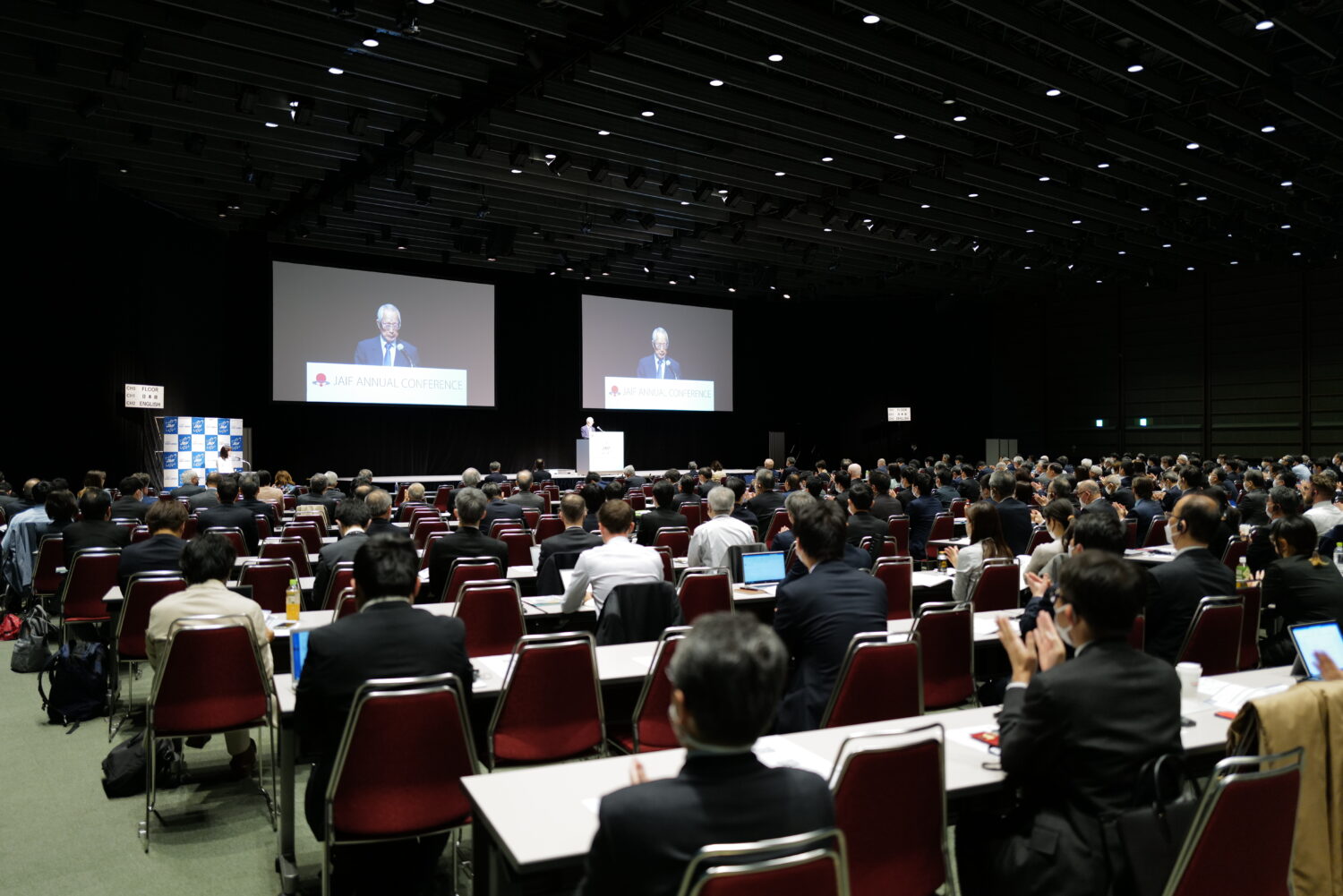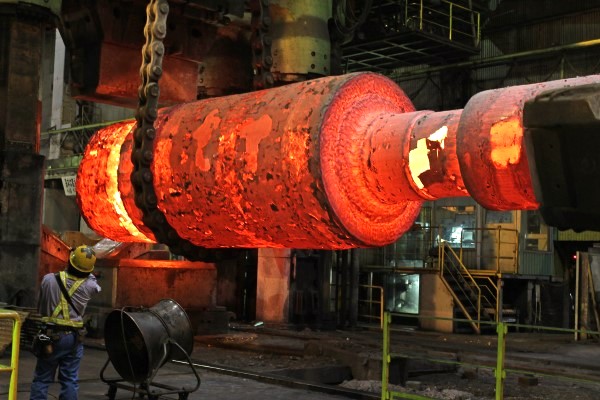The general meeting also saw the resignation of Chairman IMAI Takashi, who had been in office for 17 years, ever since 2006. For his replacement, it was decided at the board meeting held after the general meeting that Mr. MIMURA Akio (honorary chairman of the Japan Chamber of Commerce and Industry), one of the four newly appointed directors, would be appointed as JAIF’s new chairman.
At the opening of the meeting, and before he stepped down, Chairman Imai delivered a speech in which he expressed his recognition that given the current global energy crisis caused by Russia’s invasion of Ukraine, “we are at a historical turning point where energy security and carbon neutrality must be simultaneously resolved.” After citing Japan’s poor energy independence, he reiterated that “energy is the foundation of people’s lives and industrial and economic activities, and it is essential to make the maximum use of nuclear power to improve our nation’s critical situation.”
Welcoming as “very significant’’ the recent passage on May 31 of the GX Decarbonization Power Supply Bill—a bill that partially amends the Electricity Business Act, etc., for the purpose of establishing an electricity supply framework toward the realization of a carbon-zero society—he said that the [nuclear power] industry, in line with the purpose of the law, is committed to “steady progress in the restart of [reactor] operations, along with the thorough utilization of existing reactors and the expansion and replacement of new facilities in the future, as we realize the sustainable and maximum utilization of nuclear power.”
Furthermore, he pointed out that for Japan to maximize the use of nuclear power, it was particularly important to (1) reconstruct Fukushima and promote the decommissioning of the Fukushima Daiichi, and (2) promote the nuclear fuel cycle, including the early completion of the Rokkasho Reprocessing Plant, and promote the disposal of high-level radioactive waste (HLW).
In light of that situation, he said that JAIF would continue to actively develop initiatives aimed at the revitalization of the nuclear industry, including the use of radiation, based on the three pillars of public understanding, the securing and training of human resources, and international cooperation.
Next, NISHIMURA Yasutoshi, Minister of Economy, Trade and Industry (METI), who had been invited to the meeting as a guest, referred in a speech to the fact that this year marks the 50th anniversary of the first oil crisis in 1973, and emphasized that [Japan] “is working to restructure its energy policy” based on the importance of the use of nuclear power. He also reflected upon the March 2023 establishment of the Nuclear Power Supply Chain Platform, a framework to support nuclear-related companies, and the holding of the International Nuclear Forum in April 2023 concurrently with the G7 Ministers’ Meeting on Climate, Energy and Environment in Sapporo.
Having said that, he added, “Nuclear power is the engine that promotes both a stable supply of energy and the realization of GX (Green Transformation),” and stressed that “the world-class technology and personnel of Japan’s nuclear industry are at the foundation of that.” He expressed his hope that JAIF would play a role in that effort as a leader driving the world’s [nuclear] industry.
After that, Director General CHIHARA Yoshiyuki of the Research and Development Bureau of the Ministry of Education, Culture, Sports, Science and Technology (MEXT) read a speech on behalf of MEXT Minister NAGAOKA Keiko, who mentioned the use of nuclear technology in non-energy fields, the development of human resource development and R&D infrastructure, and efforts to facilitate compensation for damages.
Lastly, new JAIF Chairman Mimura expressed his ambitions by saying, “I will do my utmost to restore the status of nuclear power.” From 2011 to 2012, he had chaired the Basic Issues Committee of the Advisory Committee for Natural Resources and Energy, and chaired the Basic Policy Subcommittee in 2013, having led discussions on rebuilding energy policies after the Great East Japan Earthquake of March 11, 2011.


